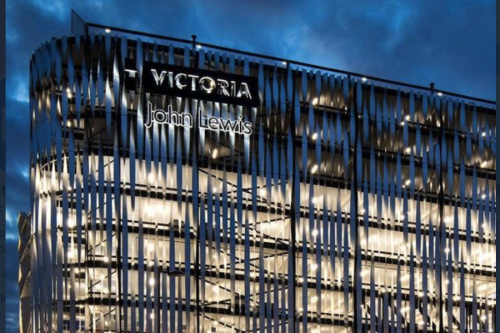Hammerson hit hard by Covid-19

The country’s biggest shopping centre owner, Hammerson, has undoubtedly felt the effects of the last 12 months. In its full year results for the year to 31 December 2021 it saw rental income fall more than 40% to £158m.
The firm which owns and operates Victoria in Leeds as well as being a joint venture partner for Bullring and Grand Central in Birmingham stated that 2020 “has resulted in the largest fall in net rental income and UK asset values in the Group’s history”. Attributing this to the lockdown restrictions imposed and an increase in the number of retail failures.
Despite the challenges of the year the business has continued to make investments. In Leicester it has submitted plans to bring forward a build-to-rent residential scheme in the former Debenhams units at Highcross. and at Martineau Galleries, Birmingham the firm has planning consent for a 7.5 acre mixed use development.
In both Leeds and Birmingham, Hammerson utilised space in Victoria and Bullring to support online operators, MATE.Bike and Tea Palace, with pop up stores through its Hammerson Presents initiative – resulting in increased sales conversion and online engagement in the local area. Both brands are now looking to extend trails and take permanent space.
However The impact of Covid on major its tenants including John Lewis which shut its Grand Central site earlier this year has clearly had a negative impact on the sites.
With the group’s UK flagship destinations which include Bullring, Victoria and Grand Central, suffered a revaluation deficit of £839m. While in Leeds its land holdings, alongside those in Croydon, Dublin and London saw a deficit of £187m.
Leeds also saw one of the largest falls in estimated rental values (ERV), with the general figure for the Uk falling by 14.3% – 2019 saw a decline 8.6%. While lower car park income at the two Croydon properties and Leeds were the principle driver of a £9.5m reduction in rental income.
As a result of the challenges created by Covid-19 the business believes although the full impact is as yet unknown the last 12 months have “accelerated many pre-existing trends”. Despite this the firm is confident that although the retail sector will lag the wider economic recovery, it still expects to see a growth in urbanisation – creating new opportunities for its schemes. It predicts a growth of 28% for Birmingham’s GDP by 2050.
Rita-Rose Gagné chief executive of Hammerson, who joined in November, said: “By any measure, 2020 was an unprecedented year with every business and household affected by Covid-19.
“As our results show, Hammerson was hit hard. The retail sector, already in the grip of major structural change, has been significantly impacted by the restrictions imposed to tackle the pandemic, and we’ve also seen an increasing number of retail failures. Combined, this has resulted in the largest fall in net rental income and UK asset values in the Group’s history.
“However, if this pandemic has highlighted anything, it is how much we all crave human contact as inherently social beings. As a business, Hammerson provides the places and social infrastructure where people want and need to be, and I am confident it will have a vital role in shaping neighbourhoods and communities in the future.”
Gagné added that the immediate focus is ensuring Hammerson gets through Covid-19 to safety, as a result alongside the results it has been reported that the firm plans to dispose of some of its French joint ventures.
The chief executive added that the business will be “sharpening our operations to maximise income” and is currently working on a thorough strategic and organisational review that will map out a route to future growth to “transform the business in the context of what will remain a tough economic and structural backdrop”.








